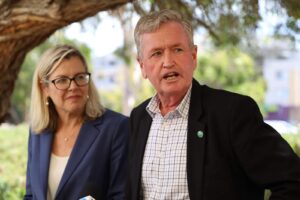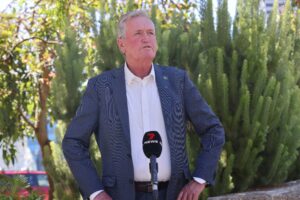Additional health funding announced as part of the State Government’s Mid-Year Budget Review does not do enough to protect regional communities from COVID-19.
Shadow Minister for Regional Health Hon Martin Aldridge MLC said while it was positive to see additional funding for WA’s struggling health system, the Government had failed to address key areas of concern in regional health.
“Earlier this week, the State Government outlined three regional areas as being particularly vulnerable to COVID-19 due to low vaccination rates – the Goldfields, Kimberley and Pilbara,” Mr Aldridge said.
“Yet the Mid-Year Budget Review offers no detail around what, if any, additional health resources these communities will receive to provide the protection they desperately need when an outbreak occurs.”
Mr Aldridge said the Mid-Year cash-splash was “too little too late” to safeguard regional families and communities ahead of the borders coming down on February 5.
“The Government has failed to deliver new ICU or high dependency beds for regional hospitals and is still yet to provide negative pressure rooms for Derby and Collie hospitals, despite promising to do so back in July 2020.
“A shortage of regional healthcare workers and a mass resignation of nurses in recent months has led to reduced hospital operating hours in the Kimberley, a closure of maternity services in Geraldton, and huge overtime requirements for remaining health workers.
“And we know we need more clinics and targeted programs to rapidly drive-up vaccination rates in the Goldfields, Kimberley and Pilbara before February 5.”
Mr Aldridge said the Mid-Year Budget Review failed to increase resources or staffing in regional WA.
“Despite having almost two years to ensure regional WA is prepared for COVID-19, we are now less than two months away from the borders coming down, and the State Government has clearly missed the opportunity to adequately prepare.”
Mr Aldridge said other initiatives announced as part of the Mid-Year Budget Review raised questions.
“The Government needs to explain why it is increasing funding for hotel quarantine when the international arrival cap is set to be drastically reduced and vaccinated arrivals will no longer need these facilities in the near future.”
Mr Aldridge said funding for COVID-19 impacted individuals and businesses was lacking.
“While the State Government has promised cash payments for individuals unable to work due to COVID-19, we have yet to see any detail around this, or what support measures will be provided to businesses forced to close due to outbreaks.
“High-risk industries like hospitality and fitness venues have already borne the brunt of COVID lockdown measures throughout 2021 and they deserve some support and certainty when shutdowns occur after February 5, or sooner.”


